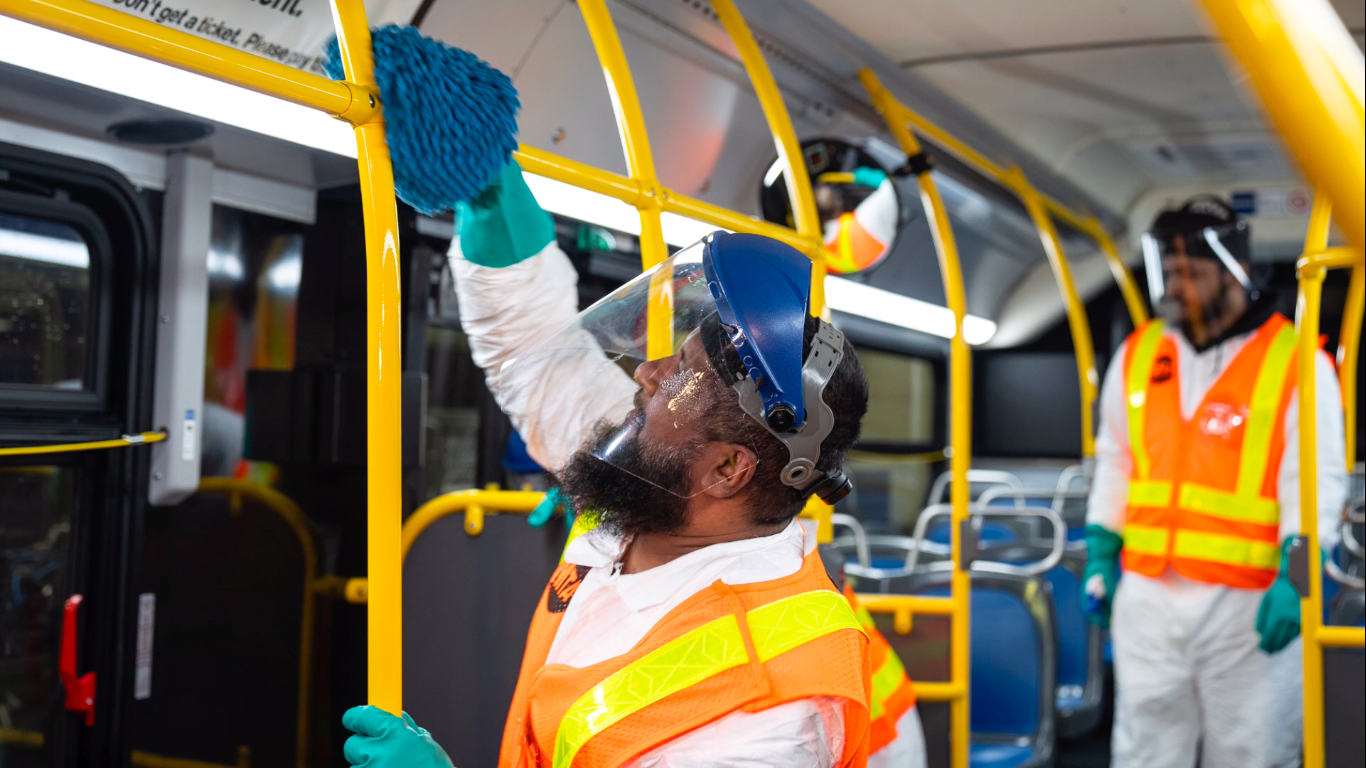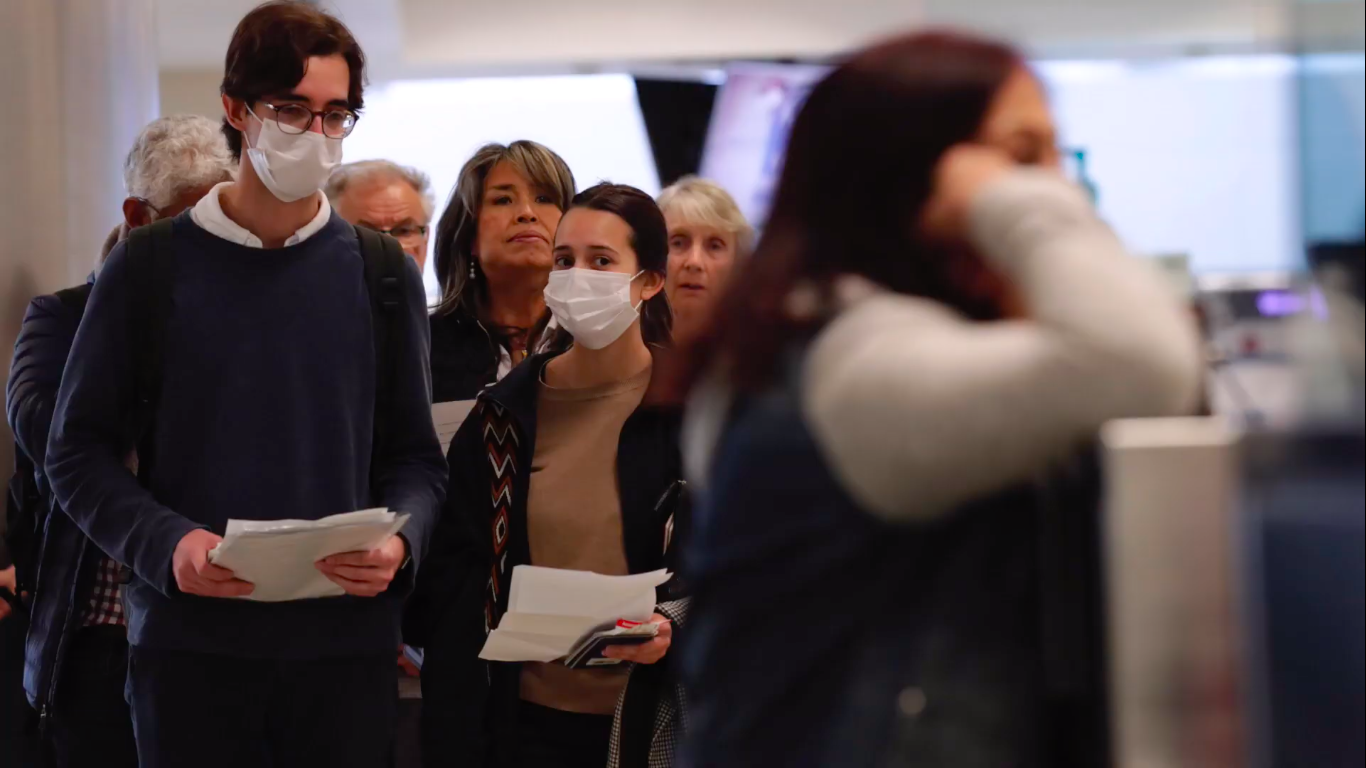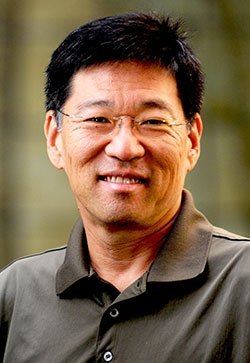News | Resilient Transportation Research for COVID-19
Stop the VideoNews


While the COVID-19 pandemic is unprecedented in many ways, research in transportation resilience provides useful guidance on how to navigate shocks to the transportation industry and infrastructure. Dr. Karl Kim, a professor of Urban and Regional Planning at the University of Hawai’i at Manoa and a member of the Pacific Southwest Regional (PSR) University Transportation Center is an internationally recognized expert in transportation resilience and his current work is directly addressing COVID-19 mobility issues.
Through the National Disaster Preparedness Training Center (NDPTC) based at the University of Hawai’i at Manoa, Dr. Kim and members of his team have developed education and training programs to equip first responders with the skills to maintain transportation facilities after a crisis. Most recently, the NDPTC has implemented Just in Time Training (J.I.T.T.) for COVID-19, which provides the public with information on the COVID-19 virus and methods to contain the virus. Since remote and isolated areas have less access to testing, less capacity for delivering treatments, and narrower supply chains to restock supplies, equipment, and necessities, the NDPTC has administered surveys to determine where the virus has spread and how it can be stopped.
Click here to watch how NDPTC is combating the coronavirus.

According to the NDPTC’s nationwide survey, officials have quickly transitioned to social distancing, quarantine, isolation, and/or lockdown protocols. The majority of communities implemented social distancing before 2% of their populations acquired the virus and imposed non-voluntary actions such as school closures and quarantine while less than 10% of their populations became sick with the virus. Social distancing has been the most common policy, with 85% of communities taking this step.
The primary motivation for social distancing has been limiting contact between individuals. The most common actions have been canceling events such as concerts, conferences, and shows, limiting non-essential travel, and encouraging workers to telecommute. The most ardent communities have closed businesses, factories, mass transit systems, parks, and places of worship to impede the spread of COVID-19.
The survey brings comprehensive geospatial specificity to the COVID-19 reseeach by geolocating survey respondents to the closest intersection to their residences. “It involves basically identifying people that may have been exposed to the coronavirus and then tracking their movements and who they may have come in contact with,” Kim told KHON2, a Hawaii news outlet. “We look at this as information that can help us provide some type of early warning.”
Click here to view and complete the survey.

Dr. Kim, who also serves as editor-in-chief of the Transportation Research Interdisciplinary Perspectives (TRIP) journal, is calling for research related to impacts and responses to the COVID-19 pandemic. Next steps include outreach to emergency, public health, transportation, law enforcement, and other agencies tasked with responding to the pandemic. Follow-up interviews and data analysis and reporting will help the Center develop content and training needs assessments.
Click here to submit a paper to TRIP and get more information.
Stay tuned for future coverage on Kim’s innovative research on COVID-19 Contact Tracing.
News Archive
- December (1)
- November (6)
- October (4)
- September (2)
- August (3)
- July (4)
- June (3)
- May (7)
- April (8)
- March (11)
- February (8)
- January (7)
- December (7)
- November (8)
- October (11)
- September (11)
- August (4)
- July (10)
- June (9)
- May (2)
- April (12)
- March (8)
- February (7)
- January (11)
- December (11)
- November (5)
- October (16)
- September (7)
- August (5)
- July (13)
- June (5)
- May (5)
- April (7)
- March (5)
- February (3)
- January (4)
- December (4)
- November (5)
- October (5)
- September (4)
- August (4)
- July (6)
- June (8)
- May (4)
- April (6)
- March (6)
- February (7)
- January (7)
- December (8)
- November (8)
- October (8)
- September (15)
- August (5)
- July (6)
- June (7)
- May (5)
- April (8)
- March (7)
- February (10)
- January (12)















